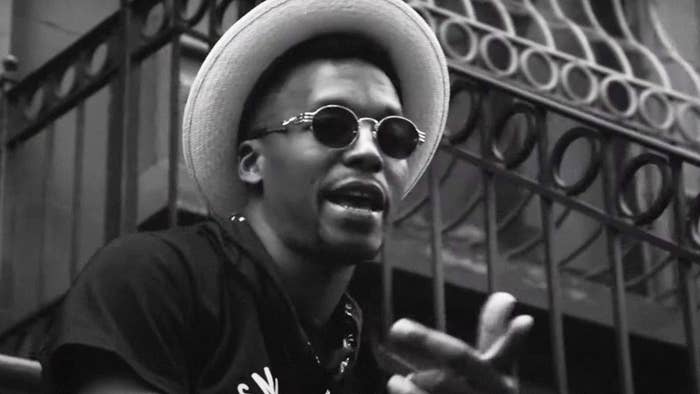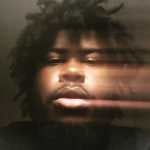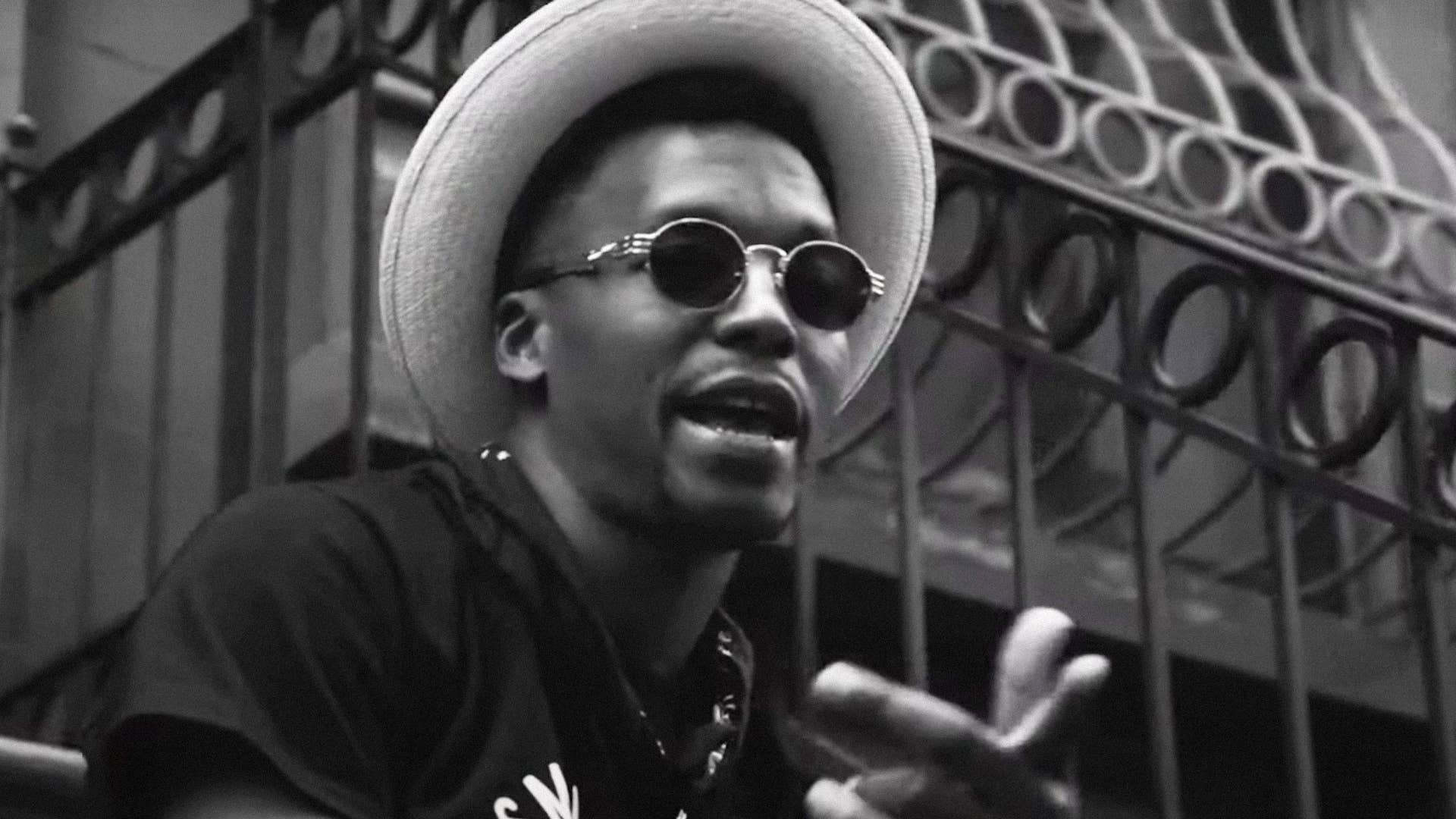
On Sunday, Lupe Fiasco replied to a tweet that asked who is the better lyricist between him and Kendrick Lamar. Lupe argued that he was the better lyricist, but he also provided some additional context.
“In my own words, once again for you bitches, I love me some KDot,” he wrote. “Always have, always will. With that said, do I think he’s a good lyricist? Yes. Do I think he’s the best lyricist? No. Do I think it’s lyricists that are better than him? Yes. Is he a better artist than me? Yes. Is he a better lyricist than me? No. Does he make better songs than me? Yes. Did I think control was ridicule? No. Am I jealous of Kdot? No. Did I personally give him his props in Chicago on stage as the next nigga to take the crown? Yes. Is It on camera? Yes. Did I mean it? Yes.”
Twitter blew up in contentious debate about the Lupe and Kendrick binary, but many of them missed Lupe’s other points. The Chicago rapper conceded that while he feels he’s the better lyricist, Kendrick is the better artist and makes better songs, which is a telling sign about where we are in 2020 rap.
During a June Instagram Live session, Lupe told fellow revered lyricist Royce Da 5’9” that Nas told him, “I’m him.” Nas himself is a universally respected MC, but he’s never been afraid to give props. When speaking of Big L in 2014, Nas admitted, “He scared me to death,” telling MTV, “When I heard [him] on tape, I said, 'Yo, it's no way I can compete if this is what I gotta compete with.'"
Back then, being the consensus top lyricist was a strong case for rap supremacy. New York rappers sought to be the King Of New York by out-barring each other. Most of the hits of that era reflect a high lyrical standard. But almost 30 years away from Big L’s ’90s heyday, the terms of competition are different. As hip-hop has expanded with new subgenres, styles, and perspectives, being the best lyricist isn’t the end-all in hip-hop debates. Top-tier lyricism is just one aesthetic of many within hip-hop, and that’s a beautiful thing.
Lupe speaks for a class of lyricists who are just fine with the freedom of being elite lyricists instead of “good lyricists” at labels that don’t understand them. It’s worth noting that rap discussion is entirely arbitrary. “Good,” “elite,” and “better” mean 20 things to 20 different people. But it’s important to understand the rubric of lyricism.
Fans often conflate lyricism with assonance or double-meaning alone. But lyricism speaks to a gumbo of factors such as technical rhyming prowess, (sustained) metaphor and simile, wordplay, storytelling, and the ability to evoke with simplicity. Examples of strong lyricism can be seen with both the bluntness of a 21 Savage or YG as well as the wizardry of Lil Wayne or Royce Da 5’9.” It’s evident in lines that hit you like a ton of bricks, as well as bars that fly over-your-head on first listen. Lyricism can be the gift that shimmers on arrival or begs you to dig for the diamond in the rough. Just about every MC worth a damn excels at some form of lyricism or another.
While Kendrick is the more popular cue to lyricism, Lupe at his best represents a gold standard, consistently able to weave together entendres with assonance while telling coherent, edifying stories. Doing one of those things makes you impressive. Doing all three at a high level, simultaneously, makes you a genius.
Here’s what Lupe said in 2018 about his Drogas Wave album: “Drogas Wave is based on a story about a group of slaves that jumped off a slave ship transporting them from Africa. The slaves did not drown, and instead somehow managed to live under the sea. They spent the rest of their underwater existence sinking slave ships. ‘Drogas’ is the Spanish word for drugs. I made it an acronym which stands for ‘Don’t Ruin Us God Said’.”
Imagine the skill it took to tell that Afrofuturist story in rhyme form, while also loading the narrative with literary devices. Here are just the opening bars of “WAV Files,” the moment in the album in which the LongChains (the escaped would-be slaves) jump off the ship:
“Wade with us
Baptize and convert to the waves with us
I tuned in to what the future holds
I could never be a slave, niggas
They gon' have to pay me, Navy
Downloaded by the tidals like Jay-Z
That's a roll offshore like an A.P., Davy
Jones' locker on top of those hoppers off the side of the ship
Suicide, didn't die from the dip”
Lupe rhymed about a group of people jumping ship to escape bondage, while simultaneously rapping about the music industry. He loaded what could have been a straightforward couple bars with references to the Davy Jones Locker idiom, iTunes, Tidal, and Audemars Piguet watches. He evoked the racial element of the streaming wars and the music industry, referring to the characters and himself when he says, “I could never be a slave.” It’s also worth noting that he had a fracture with Atlantic Records; the album is in part about the Transatlantic slave trade.
We love MCs for being honest enough to reflect on their career. We also love MCs who tell vivid stories and drop social commentary. The last thing we should be doing toward an MC who can do all three at once is laugh at them, as many believe TDE’s Punch did in response to Lupe’s comments this week.
But as Washington Post writer Chris Richards expressed in 2015, artists like Young Thug reflect a “post-verbal” era for hip-hop. Richards wrote that “instead of skipping off into the hyper-communicative valleys of the Internet, Young Thug conceals things. He mangles his words in mumbles, swallows them in yawns, annihilates them in growls. He’s not concerned with being understood. So we listen a little closer.” Richards walked this angle back in 2019 after Thug’s This Is Fun, but his point about Thug’s at-times suggestive diction stands. He reflected the thoughts of many of Thugger’s cult fans by calling him “the greatest rapper of our time.”
French Montana is another artist who has excelled with a slurry, inarticulate flow. He caught flack earlier this year for suggesting that he could go hit-for-hit with Kendrick. While most people saw his claim as a chance to get jokes off, it was also a chance to marvel at the very existence of a French Montana, and the incongruity of comparing him and Kendrick against each other. Replace French with a more popular artist of his relative ilk like Future. In that equation, a hypothetical battle would just split along the lines of Kendrick and Future’s fanbase, because they do two different things entirely.
In the late 90’s, Nas’ competition was all spitters. Comparison was a little easier along the rubric of lyricism. Nowadays, Kendrick could be pit against Lupe, a top-tier lyricist, and called out by an artist like French, a merchant of 808 bangers, while both admit that K.Dot is the better artist. There’s no expectation for any of them to be competing against each other. That speaks to the dynamism of both Kendrick and rap as a whole in 2020.
There was a time when Lupe being perceived as the best lyricist would have him in the conversation as the best artist by a significant portion of hip-hop heads. But as the genre evolved, tastes expanded and criteria changed. Now, we can admit that Lupe is a top-tier lyricist, but the experience of his music is decidedly different from that of a French Montana or even Kendrick Lamar. Debate is a bedrock of rap fandom, but the differences between modern artists renders comparison a difficult prospect. Fans, who get all the variety, are the real winners.

